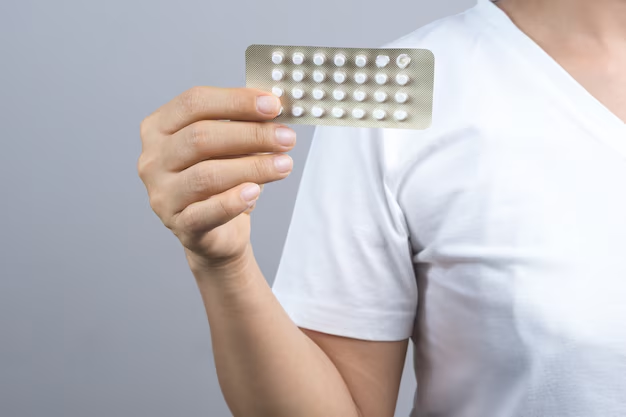Can You Still Be Fertile After Years of Birth Control?
- ghulamabbas7474614
- Jul 8, 2025
- 4 min read
If you've spent years on birth control, you're not alone. Millions of women around the world rely on contraceptives to prevent unwanted pregnancies, manage hormonal imbalances, or regulate menstrual cycles. But once you're ready to conceive, an important question arises—“Does birth control affect fertility?” This is a common concern among women planning to start a family after long-term contraceptive use.
In this article, we’ll explore how birth control impacts fertility, how your body recovers after stopping, and what to expect in the months following discontinuation. Whether you've used pills, IUDs, implants, or injections, this guide will give you a clear, science-backed overview of your fertility journey.

Understanding Birth Control and How It Works
Birth control methods are designed to prevent ovulation, alter the uterine lining, or thicken cervical mucus to block sperm from reaching the egg. The most common types include:
Oral contraceptives (the pill)
Intrauterine devices (IUDs)
Hormonal implants
Depo-Provera shots
Patches and vaginal rings
All of these methods are reversible. Once you stop using them, your body begins the process of returning to its natural reproductive cycle.
Does Birth Control Affect Fertility Long-Term?
The short answer is no—birth control does not cause permanent infertility. However, it may temporarily delay the return of ovulation, depending on the method used.
Hormonal Birth Control: Temporary Delays
Hormonal contraceptives like the pill or patch suppress ovulation. After stopping, some women may ovulate within weeks, while others may take a few months.
Keyword integration: A frequently asked question is, “Does birth control affect fertility?” In most cases, hormonal methods do not impact long-term fertility. Studies show that within a year, over 80% of women who stop using birth control conceive naturally.
IUDs and Fertility Recovery
Both hormonal and copper IUDs are quick to reverse. Once the device is removed, fertility can return almost immediately. The uterine environment is restored quickly, making conception possible in the next cycle for many women.
Depo-Provera (The Shot): Slower to Wear Off
The birth control shot is an exception. It can take 6 to 12 months or longer for fertility to return after the last injection. That’s because it works by keeping high levels of progestin in the body, and it takes time to fully metabolize.
How Long Does It Take to Get Pregnant After Stopping Birth Control?
Fertility recovery varies from person to person. Here's a general timeline:
Birth control pills: Ovulation often resumes within 1–3 months.
IUDs: Fertility can return in the first cycle after removal.
Implants: Most women ovulate within 3–6 weeks.
Depo-Provera: May delay ovulation for up to 18 months.
Remember, age and overall health also influence your ability to conceive.
Signs Your Fertility Is Returning
After stopping contraception, your body gives several signs that ovulation is resuming:
Regular menstrual cycles (even if not exactly as before)
Cervical mucus changes
Ovulation cramps (mittelschmerz)
Positive ovulation predictor kit (OPK) results
Monitoring your cycle can help you track your fertility window and plan conception.
Does Birth Control Affect Fertility in the Long Run?
It's crucial to differentiate between temporary delays in fertility and permanent infertility. There is no evidence that hormonal birth control causes permanent damage to the ovaries, uterus, or hormonal systems involved in reproduction.
However, if you're not conceiving within 12 months of trying (or 6 months if you're over 35), it’s advisable to see a fertility specialist. This helps rule out other causes like PCOS, endometriosis, thyroid issues, or male factor infertility.
Post-Birth Control Syndrome: Myth or Reality?
Some women report symptoms after stopping birth control, such as:
Acne
Irregular periods
Mood swings
Weight fluctuations
These are often temporary and related to the body’s readjustment to natural hormone cycles—not a sign of reduced fertility. While frustrating, they do not mean you're infertile.
Boosting Fertility Naturally After Birth Control
If you're trying to conceive after years of birth control, here are some effective ways to support your reproductive health:
1. Track Ovulation
Use basal body temperature charts, ovulation predictor kits, or fertility tracking apps.
2. Maintain a Healthy Weight
BMI extremes can disrupt ovulation. Aim for a balanced diet and moderate exercise.
3. Manage Stress
High cortisol levels can affect hormonal balance. Yoga, meditation, or therapy can help.
4. Take Prenatal Vitamins
Start taking folic acid and other fertility-supporting nutrients.
5. Limit Alcohol and Caffeine
Moderation supports hormonal balance and better reproductive outcomes.
When to See a Doctor
While most women regain fertility naturally, consult a doctor if:
You’ve had irregular or absent periods for 3+ months
You're over 35 and trying to conceive for 6+ months
You suspect a reproductive health condition
Getting hormone levels tested, checking egg reserves (AMH levels), and a pelvic ultrasound can help identify any hidden issues.
Conclusion: Yes, You Can Be Fertile Again
To answer the core question—Can you still be fertile after years of birth control?—yes, absolutely. The body is remarkably resilient. Most women will find their fertility returns naturally within months after stopping contraception.
Does birth control affect fertility? Not in the long run. While temporary delays are possible depending on the contraceptive used, there is no evidence of permanent infertility caused by birth control. With healthy lifestyle choices and regular ovulation tracking, your chances of conception are strong.



Comments